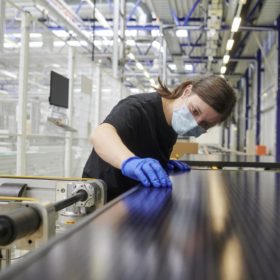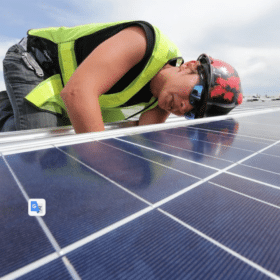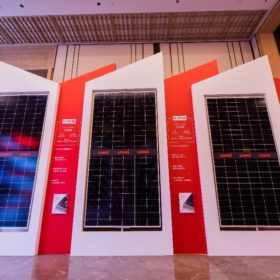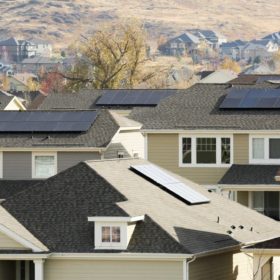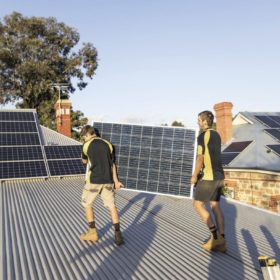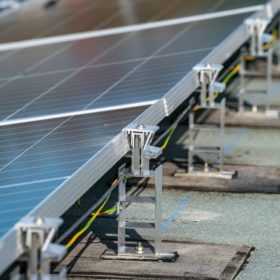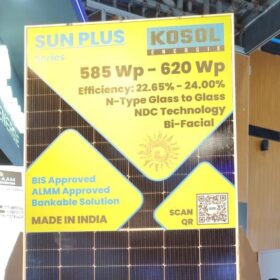Rooftop solar uptake in India: Challenges and way forward
Poor and piecemeal implementation of net metering policies is a major roadblock for the uptake of rooftop solar system in India, according to a new report by Asian Development Bank.
Renewables accounted for 64% of India’s electricity generation capacity addition in FY21
India added 7.7 GW of new renewable energy (RE) capacity in FY2020-21, out of which 5.5 GW (71%) came from solar (grid-scale and rooftop) alone. Overall power generation capacity addition for the year stood at 12.1 GW.
Solar 101: Working the angles to maximize your solar system’s output
Using Normal, Illinois, as a … well, normal … case study, we look at how a roof’s latitude, pitch, and azimuth affect energy output.
Meyer Burger unveils 400 W heterojunction solar module
The solar module will be available in three versions – white, black, and glass-glass. The products have an output of up to 400 W, but when the bifacial effect is optimally used, the output of the glass-glass module can reach up to 430 W. Both the white and black modules weigh less than 20 kg.
Solar 101: Attaching your PV system to your roof
A solar racking system’s strength is determined in part by the metal racking, but it also depends on the roof’s underlying structure. Rafters and any supporting structures must be strong enough to withstand your region’s maximum wind and snow loads.
Longi unveils two PV modules for distributed generation
The two new products will be part of the Hi-MO4m panel series for rooftop applications. Their efficiency ranges from 19.2% to 21.2%.
REC launches 405 W black solar module with gapless design
The new heterojunction panel series features an efficiency of up to 21.9 % and an operating temperature coefficient of -0.26% per degree Celsius.
Solar 101: Is my roof ready for solar?
In this series, we’ll break down the decision-making process into bite-sized pieces so you can navigate the process and feel good about your choices.
Australian solar installer receives unexpected response from customers after switching exclusively to microinverters
Solar installer Jake Warner has received surprising feedback from his customers after he chose to transition his company, Penrith Solar, exclusively to microinverters two months ago. “What I found is actually the opposite to what I expected,” Warner told pv magazine Australia.
French company unveils new rooftop PV mounting method
Axter, a French waterproofing specialist, has revealed a new mounting process for the installation of rigid solar modules on several types of buildings, including concrete, metal, and wood surfaces.


